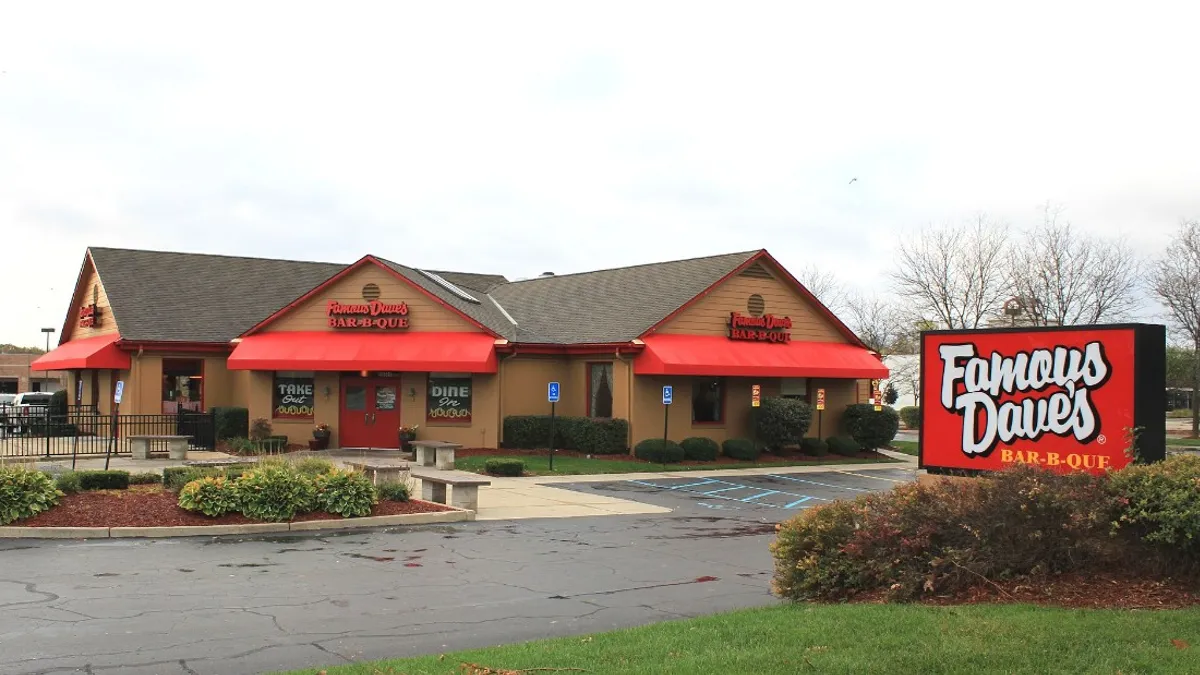Dive Brief:
- Famous Dave's has launched its first fast casual restaurant concept in Tucson, Arizona, according to Nation's Restaurant News.
- The restaurant is 2,500 square feet compared to a typical restaurant of 4,000 square feet, offers a smaller menu, uses less staff and seats up to 75 customers.
- The fast casual concept is part of the company's strategy to shift toward more off-premise concepts, especially since delivery made up half of its sales at the end of 2018.
Dive Insight:
While Famous Dave's fast casual concept is part of its overall off-premise strategy, which includes a ghost kitchen operation, it joins a handful of full-service dining chains dipping their toes into the fast casual space — and with good reason.
Visits to fast casual restaurants grew 3% in the year ending in February 2019 whereas total foot traffic across the U.S. foodservice industry was flat, according to NPD Group. Sales for fast casual chains were up 7.3% in 2018 whereas casual dining sales rose 1.3%, the slowest growth rate of any industry last year, according to Technomic data.
The Cheesecake Factory opened Social Monk Asian Kitchen, an Asian fast casual restaurant, in February, while Hooters continues to expand its fast casual concept Hoots. Outback offers a fast casual concept, Aussie Grille, within international markets. Even fine dining restaurants are venturing into fast casual to expand their customer base.
Fast casual concepts with smaller footprints are great avenues for off-premise. For Famous Dave, the drop in size may also make sense as they've seen more empty seats in its larger locations, according to Nation's Restaurant News. It also has the added benefit of appealing to millennials, who make up over half of the segment's customers. Millennials prefer fast casual establishments that have quick ordering capabilities, easy pickup and delivery and healthy options.
But not all fast casual experiments have been successful or compelling enough to expand. Red Robin retreated from its fast casual test of Red Robin Burger Works in 2016 after five years, closing nine prototypes and rebranding three as Red Robin Express, while an activist investor for Cracker Barrel has called its fast casual concept "ill-conceived." In the case of Cracker Barrel, its largest shareholder, Sardar Biglari of Biglari Holdings, has urged the company to sell Holler and Dash Biscuit House, alleging that its ROI after total cost were factored in is "closer to 4%"














